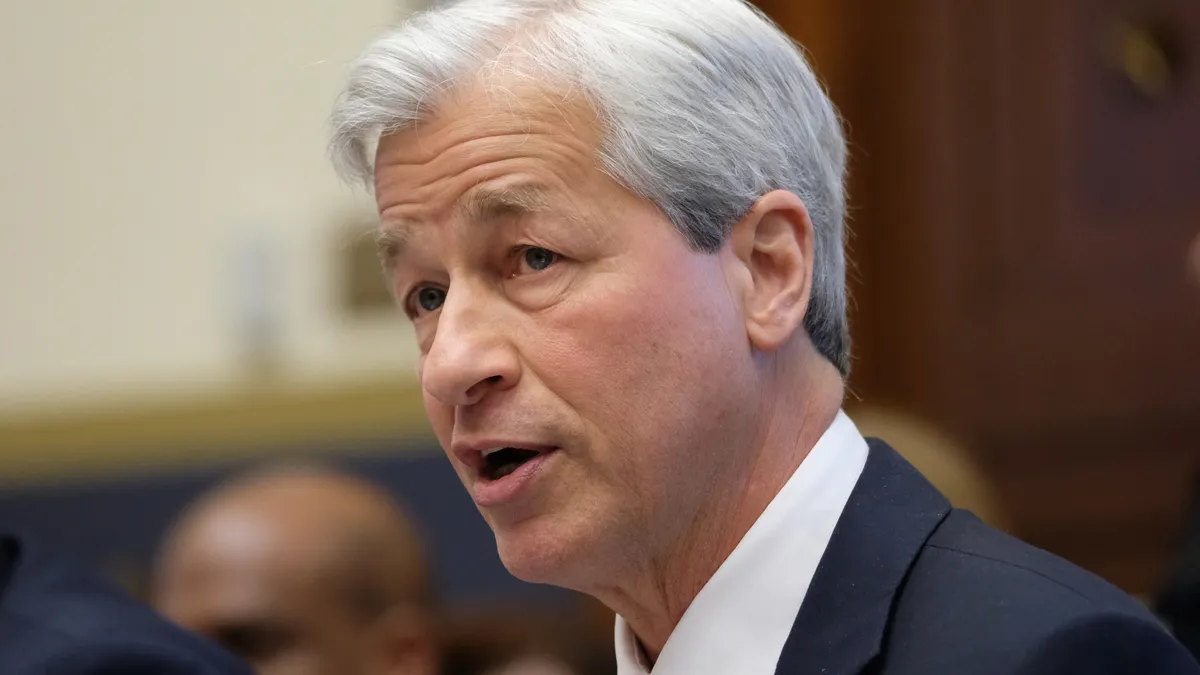More regulations would likely not have prevented the current financial crisis, JPMorgan CEO Jamie Dimon said in his letter to shareholders Tuesday, instead calling for a shift to regulations that are thoughtful, forward-looking, and collaborative.
High interest rate exposure and a large number of uninsured deposits, the factors that led to the recent collapse of Silicon Valley Bank, were well-known to regulators, he said.
And because The Federal Reserve’s stress test doesn’t include a rapidly rising interest rates scenario, SVB’s large portfolio of held-to-maturity bonds didn’t set off any red flags — and, in fact, banks were incented to have them “because they were considered highly liquid by regulators and carried very low capital requirements.”
“This is not to absolve bank management — it’s just to make clear that this wasn’t the finest hour for many players,” Dimon said.
While he expects regulatory changes in the near future, he cautioned against the creation of reactionary regulations.
“[It] is extremely important that we avoid knee-jerk, whack-a-mole or politically motivated responses that often result in achieving the opposite of what people intended,” he said. “Now is the time to deeply think through and coordinate complex regulations to accomplish the goals we want, eliminating costly inefficiencies and contradictory policies.”
“Very often, rules are put in place in one part of the framework without appreciating their consequences in combination with other regulations,” he said.
The current financial crisis, he said, will have “repercussions…for years to come,” and there are “storm clouds” present economically. But, as the only recession-era CEO still running a big bank, he noted recent events are nothing like what happened in 2008, and in many ways, the economy is healthy.
Consumers are spending almost a quarter more than they were prior to the pandemic, and have $1.2 trillion more in “excess cash” than 2019. Unemployment is low; wages are rising “particularly on the low end;” and home and stock prices have appreciated for 10 years.
However, “[t]he failures of SVB and Credit Suisse have significantly changed the market’s expectations, bond prices have recovered dramatically, the stock market is down and the market’s odds of a recession have increased... [the current crisis] has provoked lots of jitters in the market and will clearly cause some tightening of financial conditions as banks and other lenders become more conservative.”
Despite the storm clouds, Dimon expressed trust in the American financial system. The positives ahead are “huge,” he said, noting that in 20 years, America’s GDP will likely be more than double its size today, and many people worldwide will have been lifted out of poverty.
“[W]e operate with a very important silent partner — the U.S. government — noting as my friend Warren Buffett points out that his company’s success is predicated upon the extraordinary conditions our country creates,” Dimon said. “He is right to say to his shareholders that when they see the American flag, they all should say thank you. We should, too.”











